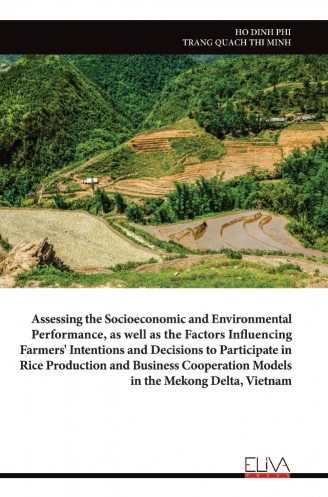
Assessing the socioeconomic and environmental performance, as well as the factors influencing farmers' intentions and decisions to participate in rice production and business cooperation models in the Mekong Delta, Vietnam
€ 79.5
描述
The Mekong Delta is known as the "rice bowl" of Vietnam due to its unique climate and soil conditions, making it the main hub of rice production in the country. However, as Vietnam becomes more integrated into the global market and faces the constraints of the World Trade Organization (WTO), there are several challenges that must be addressed in order to improve rice production and increase income for rice farmers. These challenges include competing with other rice-exporting countries on price, meeting the food safety standards of rice-importing countries, and adapting to the effects of climate change. One of the biggest obstacles to Vietnam's rice production is the relatively small size of rice farms compared to other countries. Additionally, rice production in Vietnam is primarily carried out by individual farmers, limiting their ability to take advantage of economies of scale and apply new technologies. As a result, production costs are high and the quality of rice is inconsistent, failing to meet the market demands for food safety and hygiene standards. Furthermore, the current production technology in Vietnam is not equipped to handle the effects of climate change and promote environmental sustainability. In order to tackle these challenges, the country has implemented various cooperative models, such as "Agricultural Cooperatives", "Linking 4 Houses" (which involves farmers, scientists, government, and enterprises), "Large Fields", and "Rice Production and Trading Supply Chain". These models have proven to be beneficial for farmers as they provide access to new technologies, capital, and the ability to respond to market demands. However, there is still significant room for improvement in terms of achieving economies of scale in rice production and enhancing the quality of rice to meet international standards. Based on the background theories of production cooperation and empirical studies from 12 foreign countries and 22 studies conducted in Vietnam between 2010 and 2024, the authors have identified three models.
